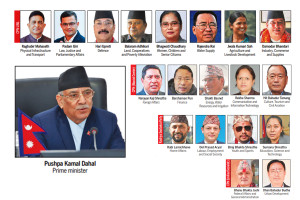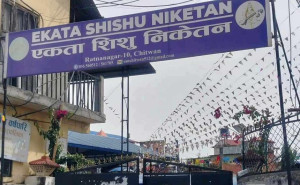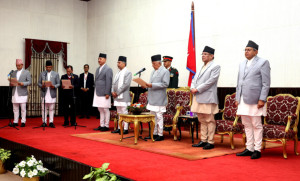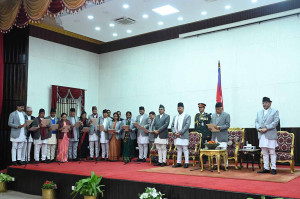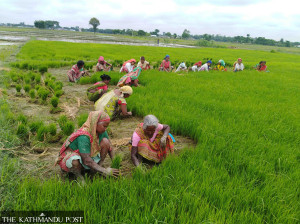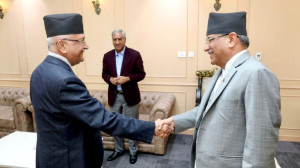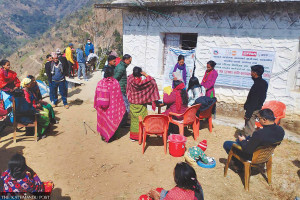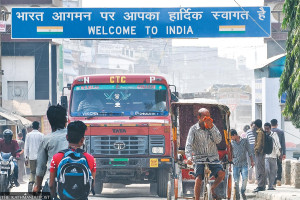 19.12°C Kathmandu
19.12°C KathmanduNational
Poll body fears delay in new law's passage may block reform
The draft bill has been at the Home Ministry for more than two months which shows that it is reluctant to expedite discussions on the bill that takes years to get through both Houses of the Federal Parliament.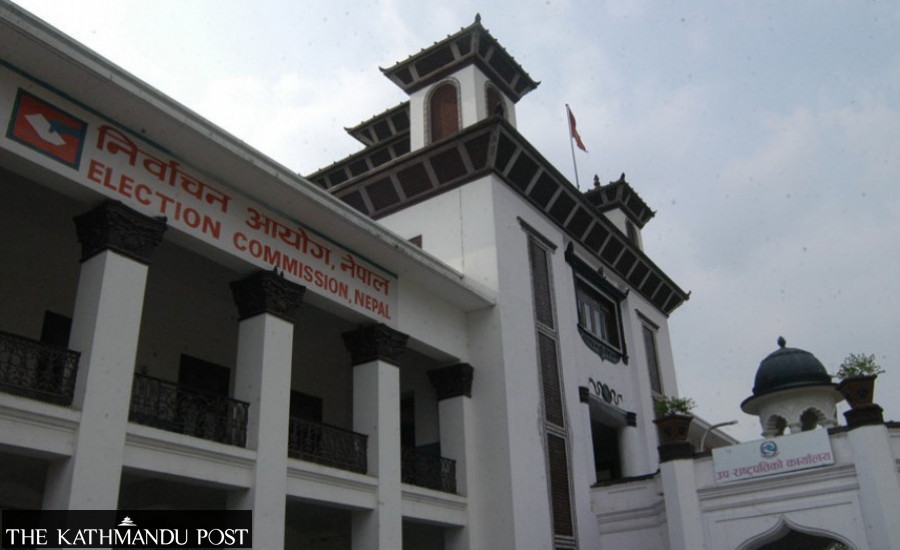
Tika R Pradhan
The Election Commission has drafted a bill to amend and integrate election-related laws and forwarded it to the home ministry.
The bill prepared by integrating seven election-related laws aims to make the elections more systemic and poll expenditures more transparent.
However, the ministry has not taken steps to expedite the process for its timely endorsement despite the commission’s demand for having the integrated law in place ahead of the next round of elections.
“There are around ten bills in the queue, and we haven’t got time to see the election-related bill,” said Joint-secretary Bharat Mani Rijal, who heads the law division of the home ministry. “We will focus on the bill only after Constitution Day, which is on September 20.”
Having presented the bill on July 3, the Election Commission has requested the prime minister for its early endorsement so the next elections could be conducted under the new law.
The new bill has proposed reducing the silence period to 24 hours, in response to concerns from various stakeholders and party leaders that candidates misused the time to influence voters unduly. The commission has also proposed harsher punishment for the candidates to ensure transparency in their spending—barring them from becoming candidates for six years if they fail to present their poll expenses within the stipulated time.
According to Election Commissioner Sagun SJB Rana, the commission has informed the prime minister about the bill's urgency.
“If the government took years to pass the bill, we cannot implement it in the next polls,” Rana told the Post, adding that the government was reluctant to take up the bill urgently.
The commission spent around six years preparing the bill, after studying the international practice and discussing it with the political parties and media.
The proposed changes include “no vote” and mandatory 33 percent women candidates in the first-past-the-post system. As per the existing law, a party must field a female for the post of either the chief or deputy chief of a local unit. As per the new bill, if the parties field only one candidate for mayor/chair or deputy mayor/vice-chair in some of the local units, they must be female.
While Parliament meetings have been postponed many times for the lack of business, the home ministry has not even started discussions on the election bill.
Joint-secretary Rijal said since they were busy with various other issues, there was no time for discussing the election bill, though it was on the ministry’s priority list.
After several rounds of discussions with stakeholders and experts, the bill will be sent to the law ministry, the finance ministry and even the Public Service Commission for their nods. If the ministry doesn’t expedite the process, it may take even years for the bill to reach Parliament. Once the draft bill is endorsed by the ministries and institutions, it will be presented to the Cabinet, which endorses the legislation after the bill committee pass it. Once the government takes the bill to Parliament, its endorsement could take months.
“Even after the law is ready, we need time to prepare directives for implementing the provisions,” Rana told the Post. “Therefore, we have been pressing the government and political leaders to expedite the bill’s endorsement by various ministries and the legislature.”
Rana said the commission won’t be able to implement the new provisions next elections if the bill is not endorsed by mid-April 2025.
Government officials say how long the bill will be held depends on the opinions of the home secretary and the minister.
“I have no idea how long the bill will take to be fully ready,” said Rijal, the joint-secretary. The Post’s repeated attempts to contact Home Minister Narayan Kaji Shrestha were unsuccessful.











